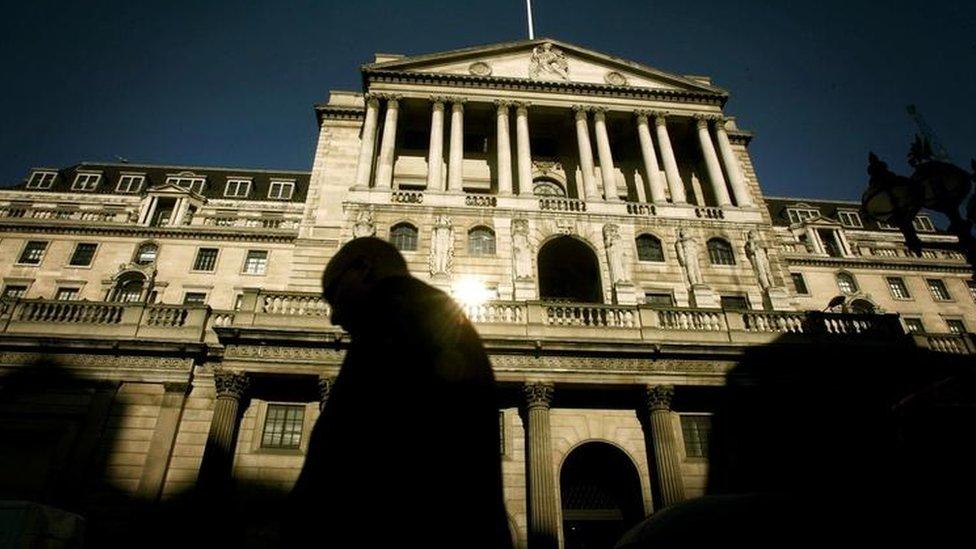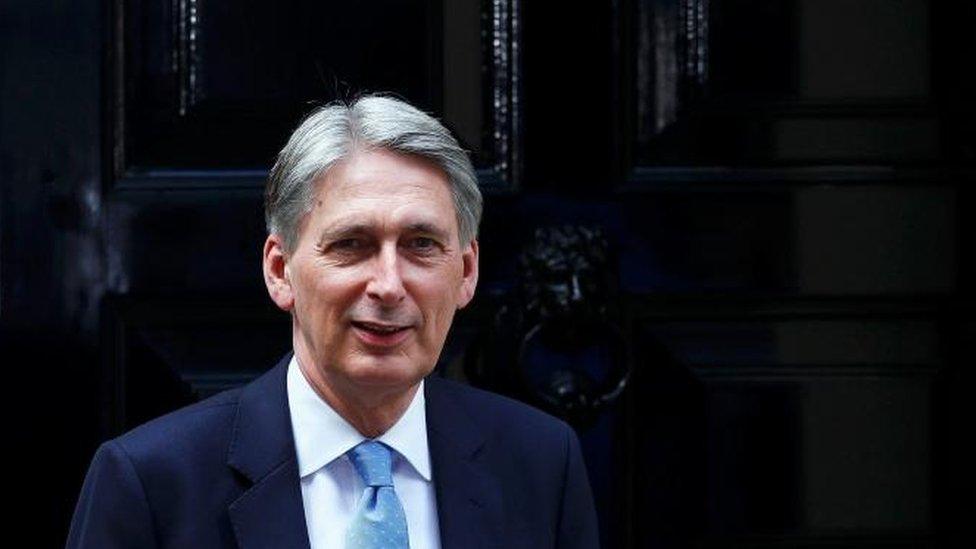Bank admits economy is looking better
- Published
- comments

In one sentence the Bank has revealed it is ready to upgrade its growth forecasts for the UK economy.
"The Committee now expects less of a slowing in UK GDP growth in the second half of 2016," it said, referring to the Monetary Policy Committee of Bank economists and external experts that sets UK interest rates.
The key point - the Bank's internal judgement is that growth in Q3 (that's July to September) will now be between 0.2% and 0.3%, a pretty chunky upgrade on its August forecast of 0.1%.
It's not an official forecast, but given the Q3 growth figure will be announced before the next meeting of the MPC in November, it is as close as we are going to get.
Those who predicted the possibility of a recession following a vote to leave the European Union - which included the governor of the Bank of England - are having to revise their positions.
The UK economy has performed more robustly than many expected.
Consumer confidence has bounced back, and today's strong retail sales figures reveal that the positive figures of July were largely repeated in August.
We are spending while the sun is shining.
Second, inflation has remained subdued, although upward price pressure in the economy is increasing as import costs rise due to the fall in the value of sterling.
The housing market is "less negative than expected" according to the MPC and business surveys of activity from organisations such as the CBI have also "picked up a little".
Employment rates remain at record levels.
And the Bank's own interest rate cut has added to economic confidence.

Will the chancellor have to apply the "fiscal reset"?
Looking at 2017, the MPC says it is harder to make a judgement, but if the present economic momentum continues, then expect an upgrade in growth forecasts for next year and 2018 after brutal downgrades last month.
It still says that is considering cutting interest rates again - to 0.1% - but the chances of that must be lower given the better economic news.
The next MPC meeting - and the publication of the quarterly inflation report, the Bank's substantial judgement on how the economy is performing - will be on 3 November.
That's three weeks before Philip Hammond delivers his first Autumn Statement setting out his economic plans.
If growth is stronger than expected, then the chancellor may not feel it as necessary to apply the "fiscal reset" he said he was considering earlier in the summer.
That could mean less borrowing, fewer tax cuts and a more robust statement on when he expects to bring the public finances into surplus.
Although he has abandoned the 2020 target set by George Osborne, those close to Mr Hammond have reminded me in no uncertain terms that Mr Hammond is a "fiscal hawk".
Yes, I am sure the government wants to be seen to be supporting big infrastructure projects, for example, but with the economy looking stronger than expected do not expect a spending splurge to fix a roof that might be slightly less broken than many predicted.